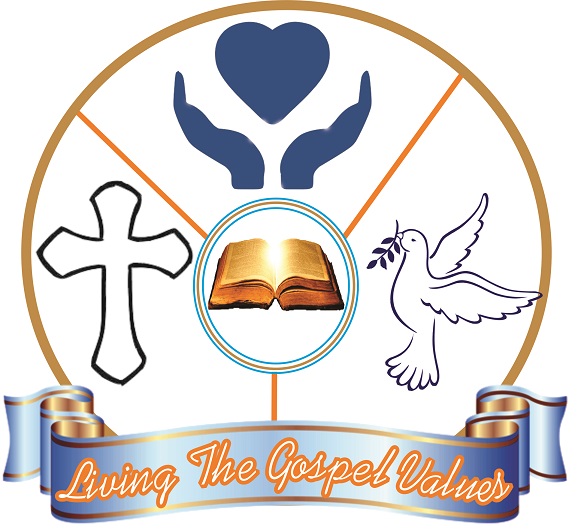What St. Luke Teaches Us
Living the Gospel Value
October 17, 2021
Reflection on the Feast of St. Luke, the Evangelist, Monday 18th October, 2021
Texts: 2 Timothy 4:10-17ab; Ps. 145:10-13ab, 17-18; Luke 10:1-9
Today is the feast of St. Luke, the author of third gospel and Acts of the Apostles. It is believed that he is the same person St. Paul makes reference to in his letter as Luke. In the letter to the colossians, St. Paul says, "Luke, the beloved physician" (4:14). In today's first reading, he says, "Luke alone is with me" (Tim. 4:10). This shows that he is a good companion. He stayed with Paul at the time others deserted him (Paul). Companionship is needed for success; it provides strength, security, perseverance, confidence and stability in one's life. The importance of companionship was affirmed by Jesus Christ as he sent out seventy disciples, two by two. He sent them out two by two because he knew the need of a companion for success in the assignment he entrusted into their hands. This shows that St. Luke contributed greatly to the success of St. Paul in his mission. In the Acts of the Apostles there is indication that Luke accompanied St. Paul in his missionary journey. He used 'we' sometimes to include himself. The use of 'we' shows that he accompanied St. Paul in his journey to Jerusalem and to Rome (21:1-18; 27:1-28; 28:1-16). As physician he would have been of great help in maintaining the health of St. Paul. He would help in putting St. Paul in good health for his missionary works.
We need to learn from St. Luke to be a companion to one another. Being a companion to one another increase our chance of survival and success. Let us be a companion to the heralds of the gospel that the few labourers may have more and better yields. Let us remember that they are sent out without some necessities of life so as to avoid distractions and keep them focused, and to enhance their success. Let us know that they need those necessities of life for success in their mission. Jesus Christ has given us the task of providing those necessities. In our various capacities let us contribute our own quotas. Let us be like St. Luke who was a great help to St. Paul in maintaining his health.
St. Luke teaches us to have compassion towards our neighbours by portraying the compassion and gentleness of Jesus Christ. He writes about the response of Jesus Christ to the woman of Nain, whose only son was dead, thus: "When the Lord saw her, he had compassion for her and said, 'Do not weep'" (7:13). He also shows that Jesus Christ was gentle with a woman who was a sinner and had compassion on her (7:36-48).
St. Luke also calls us to pray by speaking of Jesus Christ at prayer. He tells us that Jesus prayed at the moment of importance in His life: He prayed at baptism (3:21); He prayed before choosing His apostles (6:12); He prayed before His passion (22:39-46). He also tells us that Jesus withdrew to a lonely place to pray (11:1). He also tells us that Jesus taught his disciples how to pray (11:22-4).
St. Luke also teaches us to desire and pray for the gift of Holy Spirit. He shows us the action of the Holy Spirit in the Church. The second work of St. Luke, the Acts of the Apostles, could also be called the Acts of the Holy Spirit because it shows the actions of the Holy Spirit in the Church. Holy Spirit is the principal and active agent throughout the Acts of the Apostles.
St. Luke often reminds us in his works to value the ordinary people, the less privileged like widows, the orphans, the sick, the bereaved, etc. He reminds us not to overlook anyone by showing us instances in which Jesus attended to the outcasts, for example lepers (17:11-19), Zachaus (19:1-10), Matthew (5:12-27-28), etc. He also shows Jesus in the company of women (8:1-3). He also shows that salvation has no boundary: it cut across all social classes and cultures. Salvation is for all.
Lord God, who chose Saint Luke to reveal by his preaching and writings the mystery of your love for the poor, grant that those who already glory in your name may persevere as one heart and one soul, and that all nations may merit to see your salvation. Amen. (Colect)
Fr. Andrew Olowomuke
- July 20251
- January 20253
- December 20242
- November 20245
- October 20244
- September 20242
- August 20245
- July 20247
- June 20247
- May 202413
- April 202420
- March 202422
- February 202428
- January 202434
- December 202333
- November 202330
- October 202333
- September 202329
- August 202331
- July 202331
- June 202315
- October 20221
- September 20228
- August 20221
- July 20221
- June 202218
- May 202230
- April 202230
- March 202210
- February 20229
- January 202228
- December 202133
- November 202130
- October 202130
- September 202115
- August 202128
- July 202131
- June 202128
- May 202133
- April 202128
- March 202130
- February 202131
- January 202131
- December 202032
- November 202032
- October 202034
- September 202028
- August 202031
- July 202031
- June 202026
Wikipedia
Search results
Contact Form
Popular Posts

The Sainthood
November 01, 2020

Conversion: Our way of Life
January 24, 2022

Be Unassuming
November 03, 2023
AD BANNER






0 Comments